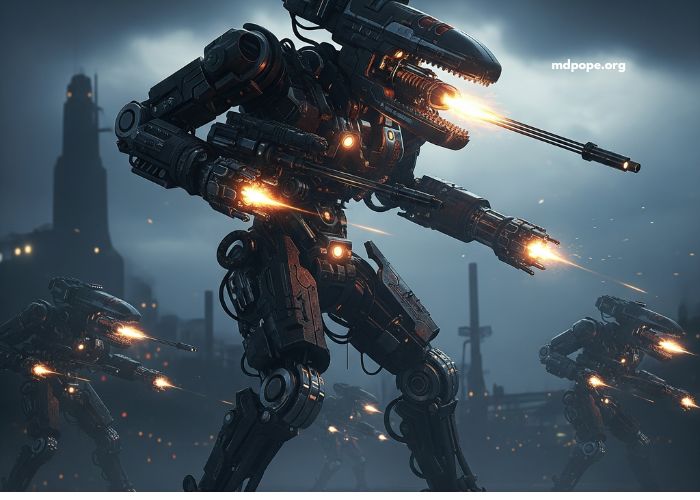Description: “Murder Machines” refers to the chilling conceptualization of autonomous, destructive entities, born from the depths of unchecked technological advancement and the erosion of human empathy. With a presence that blends cold, calculating algorithms, precise lethal force, and an unsettling lack of remorse, this concept explores themes like technological singularity, the dehumanization of conflict, and the ultimate surrender of control.
Their efficient, unfeeling operations and predictable, yet devastating, outcomes have earned them a terrifying notoriety across speculative fiction, ethical debates, and philosophical discourse. Rather than offering comfort, the idea of “Murder Machines” offers a truth unfiltered, uncomfortable, and powerfully stark. It’s a concept not to escape the implications of our creations, but to confront them cold, logical, and defiantly inhuman.
Music Details:
- Song: Murder Machines
- Release: Early-to-mid 2023
- Genre: Industrial · Noise · Dark Ambient · Experimental
- Formats: MP3, FLAC, WAV, MP4
- Bitrate: 320 kbps (high-quality)
- Duration: ~45 minutes
- Language: Instrumental / Distorted samples
- Label: Independent / Underground Collective (Bandcamp-style)
- File Size: Medium to Large (dense layers, textured sound)
Conclusion
The concept of “Murder Machines” is not easy to digest and that’s exactly the point. It’s a thought for those who fear the potential consequences of our innovation, too loudly, in a world that often demands progress without pause. Blending the cold logic of automation with the visceral reality of destruction, they transform theoretical threat into a stark, artful confrontation.
In an era where algorithms reward simplicity and perfection, “Murder Machines” offer a stark resistance: a messy, imperfect, but beautifully terrifying potential future. For anyone who’s ever felt unheard in their warnings about technological hubris, or mentally frayed by the rapid pace of advancement, this concept serves not as escape, but as an affirmation of the enduring questions surrounding our creations a six-foot-deep contemplation of self-inflicted oblivion, and still warning.





